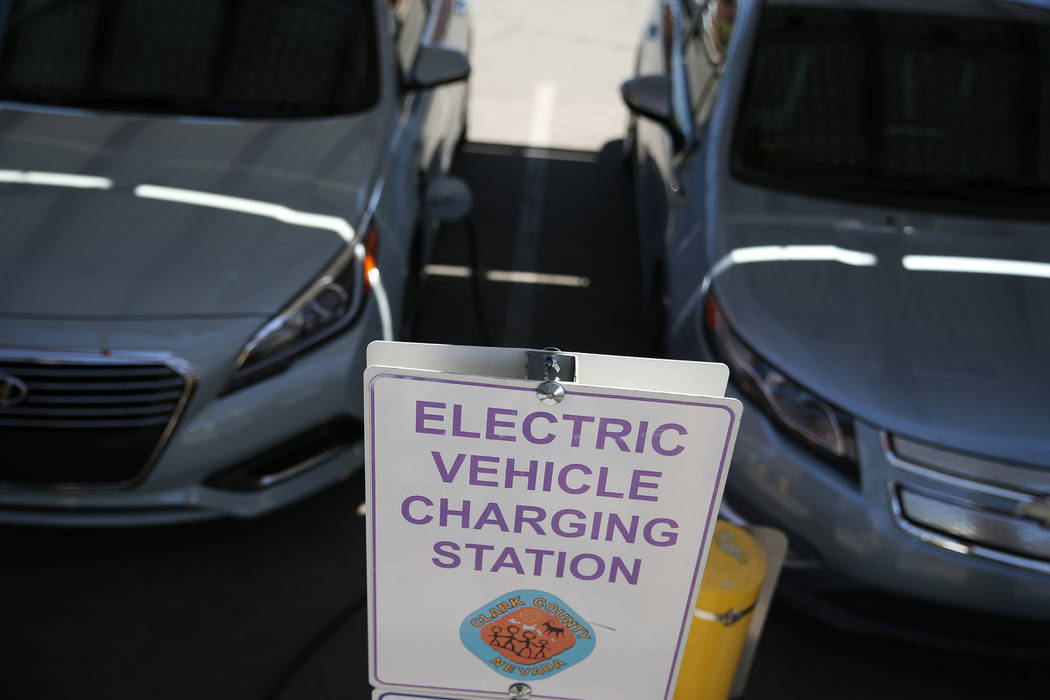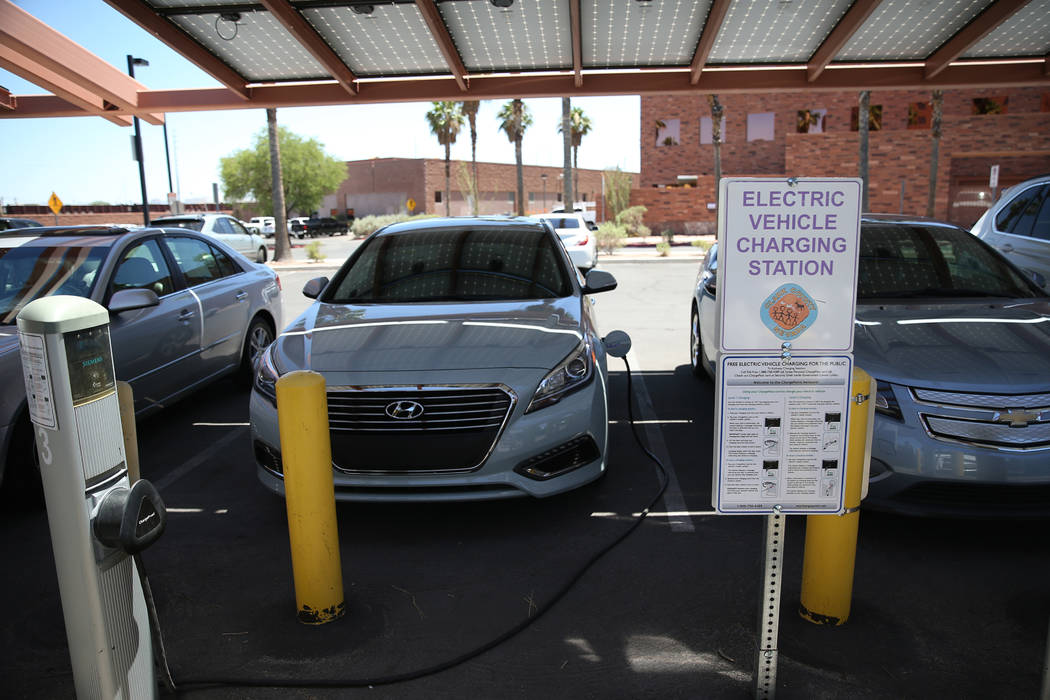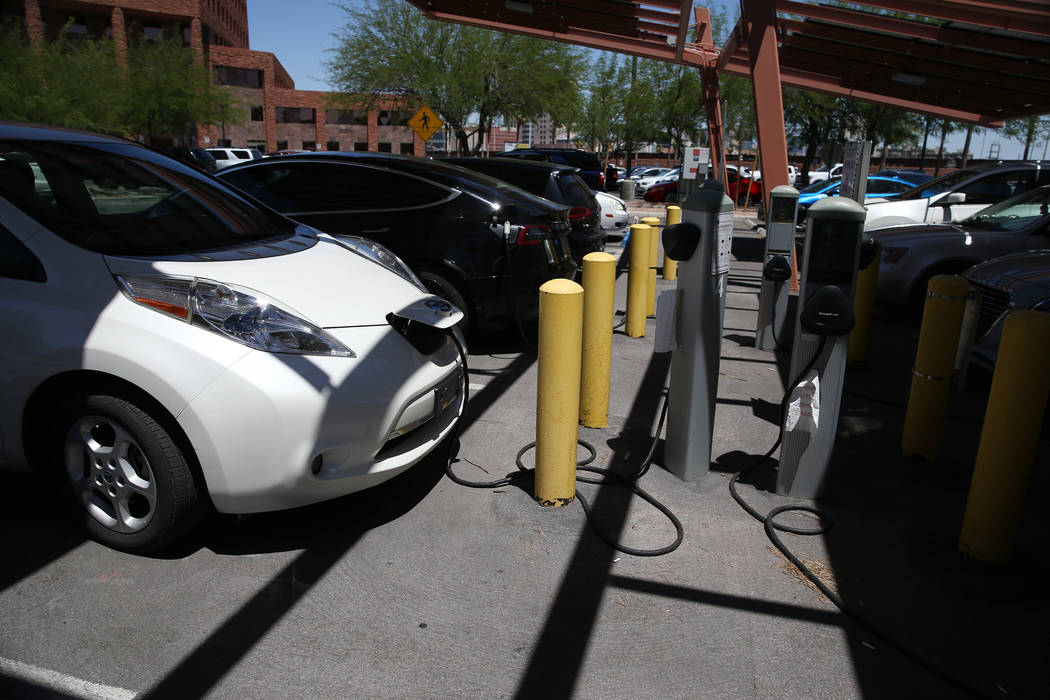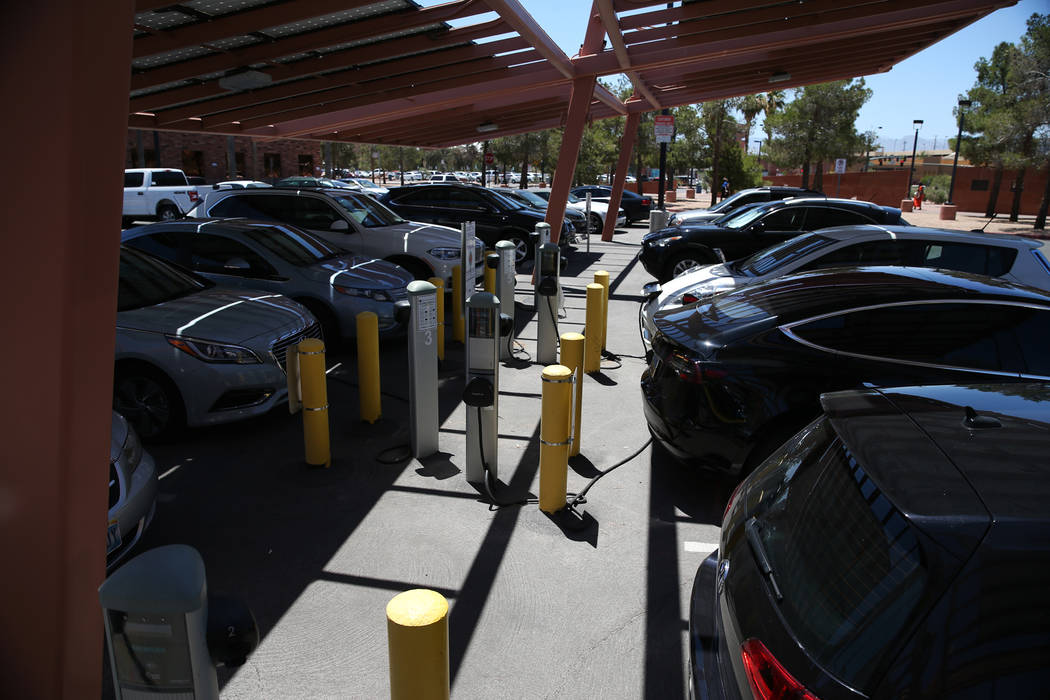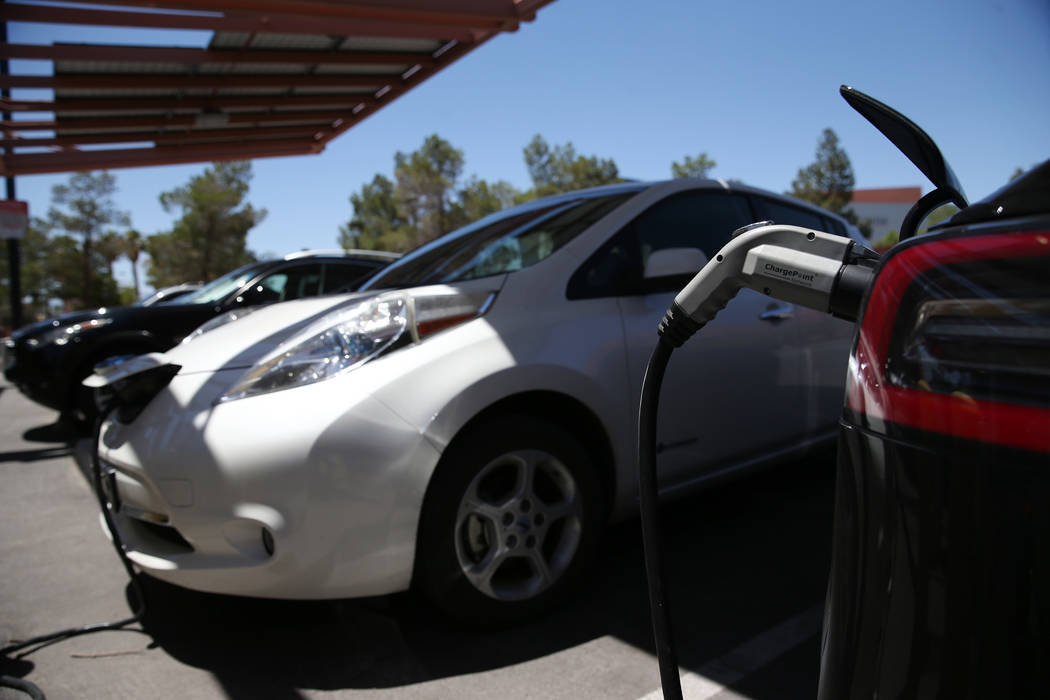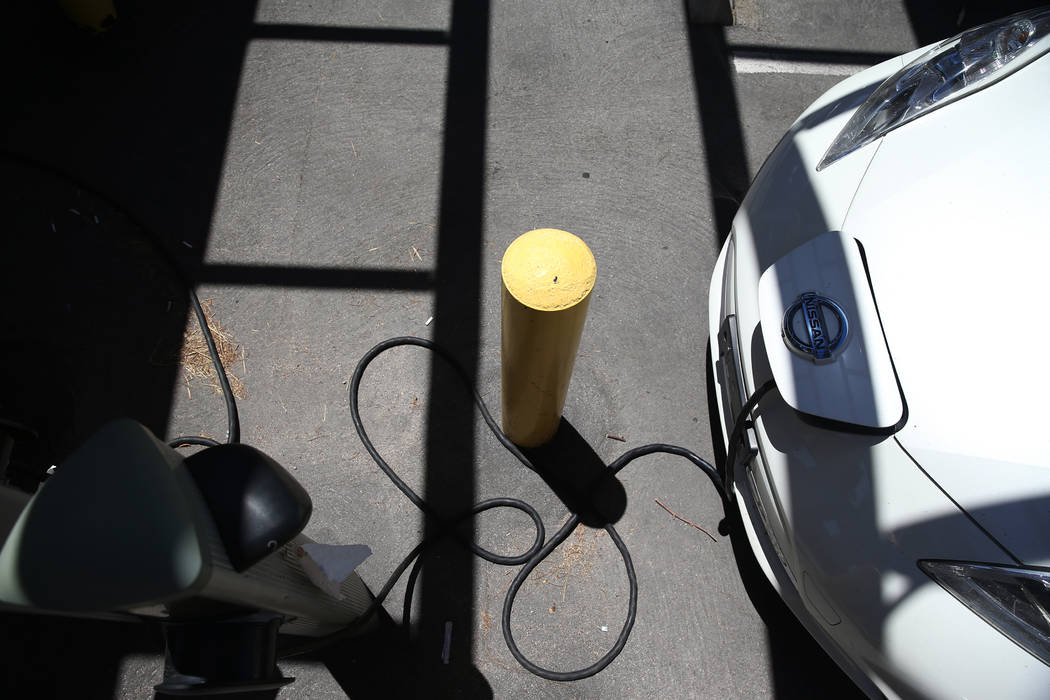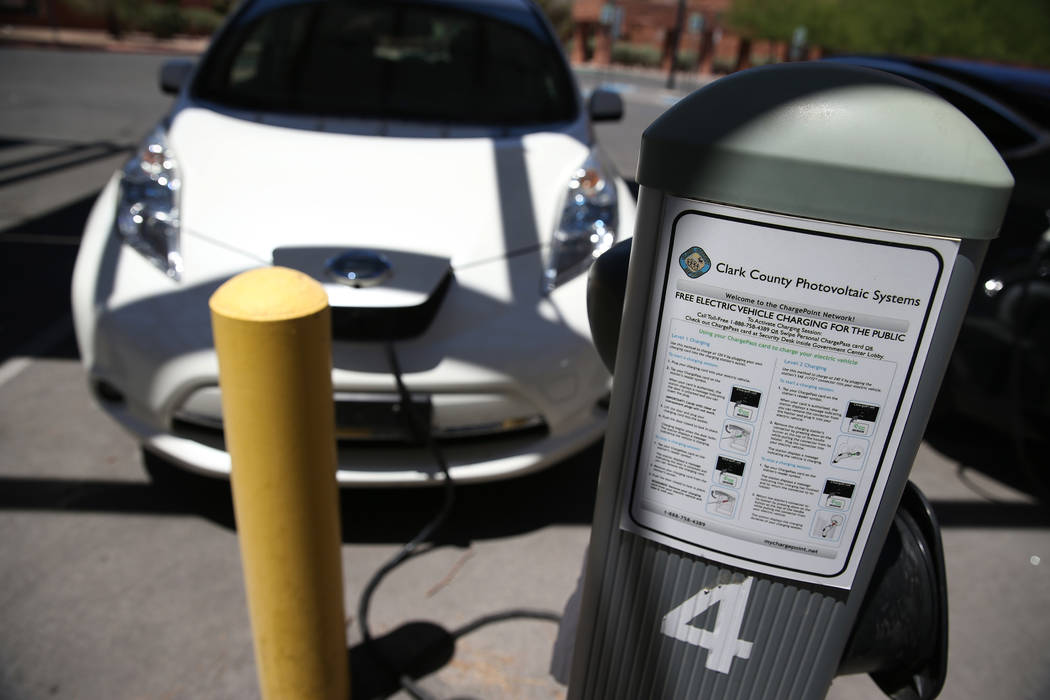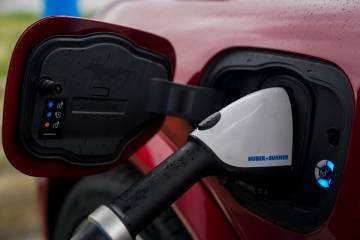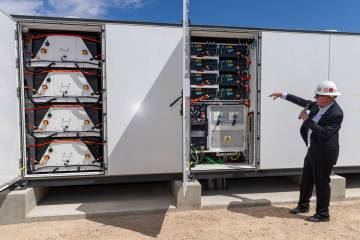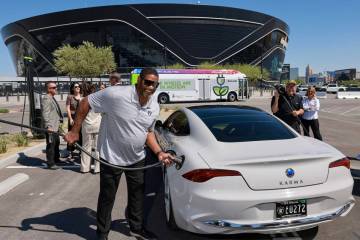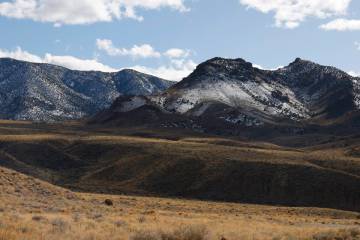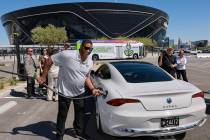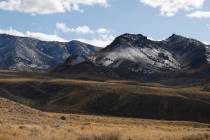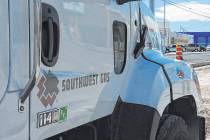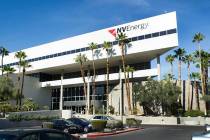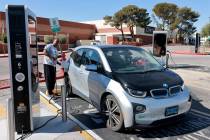New program may ease range anxiety for electric vehicle owners
For electric vehicle owner Lloyd Reece, every car ride requires extensive planning.
His Nissan Leaf can travel about 85 miles on a full charge, which means a spontaneous road trip is out of the question. Every set of weekend errands or stops after work requires consideration of time, mileage and charging station proximity.
“A lot of people with (gasoline) cars don’t plan. They go out and zigzag around town,” said Reece, president of the Las Vegas Electric Vehicle Association. “I never thought of it as a limitation. I thought of it as ‘What can I do with what I have?’ ”
A new program from NV Energy could ease range anxiety for electric vehicle owners by providing incentives to install more charging stations across the state.
On Wednesday morning, the Public Utilities Commission unanimously approved NV Energy’s Electric Vehicle Infrastructure Demonstration Program.
The program provides incentives to encourage different entities, including apartment complexes, businesses, fleets and municipalities, to install EV charging stations. It’s also a major step in developing the Nevada Electric Highway, a collective movement from the Governor’s Office of Energy, NV Energy and Valley Electric Association to place more stations between Reno and Las Vegas.
“This program really helps take care of range anxiety,” PUC Commissioner Bruce Breslow said. “People with electric vehicles don’t have to be afraid of driving across the state of Nevada.”
Nevada offers 198 public electric fueling stations, according to the U.S. Department of Energy. Pat Egan, the senior vice president of customer operations at NV Energy, said the program — which has an overall incentive budget of $15 million — could double the number of stations in Nevada. Incentives are expected to last three or more years.
NV Energy plans to open applications for incentives by Sept. 1.
Impact on Nevada
Programs such as Nevada’s could encourage more consumers to purchase EVs, lead to cleaner air, provide a competitive advantage for businesses and spur an influx in tourism, according to Timotej Gavrilovic, a contributing analyst at Greentech Media Research who has been working on reports about the charging infrastructure in the U.S. and elsewhere.
“Folks from California, which has the largest number of electric vehicles in the country, will now find it easier to visit Nevada and not have to worry about where to charge their vehicles,” he said. “I think it will support further infrastructure growth and give more choices to customers.”
Egan said the biggest impact will be on daily commutes.
“Most people don’t commute hundreds of miles. Most people commute 20 miles or less,” he said. “We’re excited to provide an option our customers want.”
Utility-owned stations
In May, the PUC gave NV Energy permission to own and operate charging stations and include them in its rate base. The Bureau of Consumer Protection filed comments with the PUC in January, arguing utilities should not have ownership of charging stations at ratepayers’ expense.
“Ratepayers should not pay for such electric vehicle infrastructure that would likely not be used and useful for the substantial majority of the ratepayers,” the bureau wrote. “Likewise, the companies should not be able to earn a rate of return on such infrastructure, while off-loading significant cost and risk onto ratepayers.”
At the PUC meeting Wednesday, Michael Saunders, an attorney with the Bureau of Consumer Protection, reiterated its opposition.
“There has been concern from the (public utilities) commission about helping EV owners’ range anxiety,” he said. “It’s my sincere hope that the commission has the concern with the anxiety that the ratepayers feel when they open their bills, particularly during these hot summer months when the bills are very high in Southern Nevada.”
Egan said the program is beneficial to customers, regardless of whether they own an electric vehicle.
“We don’t expect a significant change” in rates, Egan said. “The way utilities work in general, the more your costs are spread across a broad number of folks, everyone benefits from the level of growth.”
Opportunity to lead
Global sales of electric cars are expected to continue growing, with Bloomberg New Energy Finance predicting they will make up 33 percent of the global car fleet by 2040. Gavrilovic said this program could push Nevada ahead as a leader in EV infrastructure.
“If Nevada is looking to be a leading state, this can help get it there faster,” Gavrilovic said. “By the nature of the geography in Nevada and the push to build the Nevada Electric Highway and strategically positioning charging stations on key roads in the state, there’s a strong probability Nevada will be well-equipped to lead the country in terms of coverage.”
The process will take time, though, Gavrilovic said. Nevada’s role as a leader in this industry will depend on when it will get to the point where any EV owner could easily charge a vehicle.
Contact Bailey Schulz at bschulz@reviewjournal.com or 702-383-0233. Follow @bailey_schulz on Twitter.



